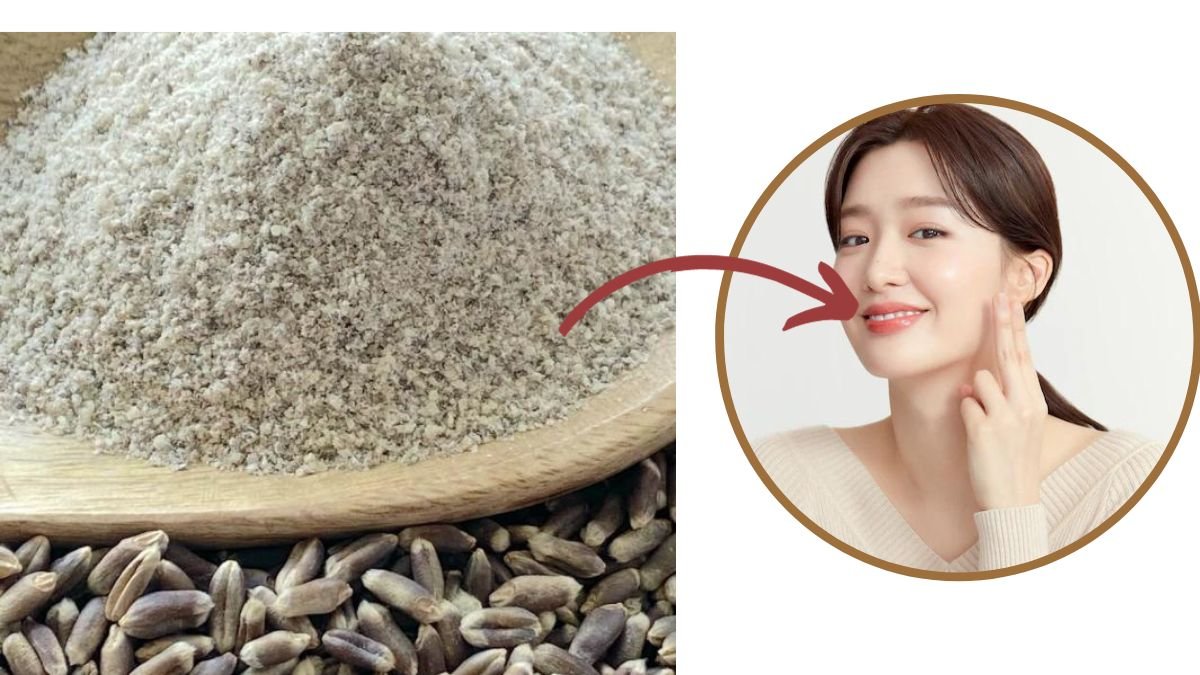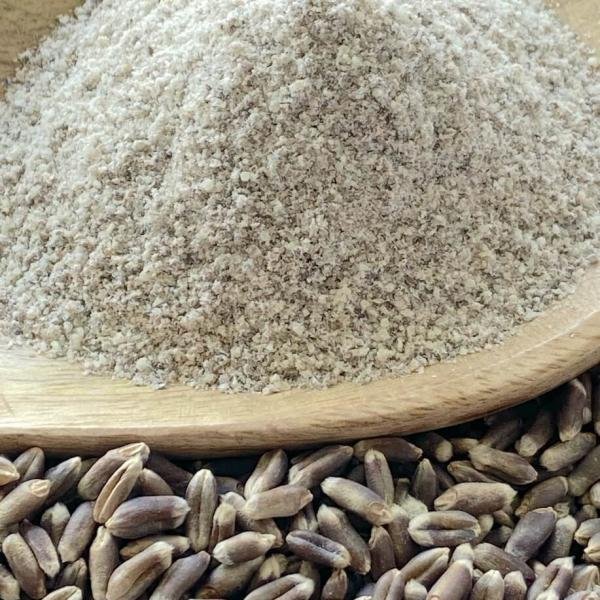Black wheat flour, often called ‘kala gehun’ or ’emmer wheat’, is a variety of wheat that has attracted attention due to its potential health benefits. Here are some benefits associated with black wheat flour:
- Nutritional Value: Black wheat flour is rich in nutrients such as fiber, protein, vitamins (such as vitamin E, B-complex vitamins), and minerals (including iron, magnesium, and zinc). These nutrients are essential for overall health, aiding in various bodily functions.
- High fiber content: It contains higher levels of dietary fiber than regular wheat flour. Fiber supports digestive health, helps prevent constipation, and may help lower cholesterol levels.
- Antioxidant Properties: Black wheat contains antioxidants like phenolic compounds and flavonoids that help combat oxidative stress, reduce the risk of chronic diseases, and support overall well-being.
- May aid weight management: The fiber content in black wheat may contribute to the feeling of fullness, potentially helping weight management by reducing overeating and promoting satiety.
- Potential glycemic control: Studies show that consuming whole grains, such as black wheat, may help control blood sugar levels due to the fiber content, potentially reducing the risk of type 2 diabetes.
- Heart Health: The fiber, antioxidants and other nutrients in black wheat flour may contribute to heart health by reducing the risk of heart disease, lowering cholesterol levels and supporting healthy blood pressure.
- Gluten Content: While black wheat does contain gluten, some individuals who are sensitive to modern wheat gluten varieties may find it more digestible or less reactive. However, it is important to note that it is not gluten-free and may not be suitable for individuals with celiac disease or severe gluten intolerance.
- Diverse Culinary Uses: Black wheat flour can be used in a variety of recipes including breads, pasta, pancakes and baked goods, providing a different flavor and potentially improved nutritional profile than traditional wheat flour. Increases.
Remember, while black wheat flour offers potential health benefits, individual reactions may vary. Moderation and balance are important when adding any new food to your diet. If you have specific dietary concerns or health conditions, it is advisable to consult a health care professional or registered dietitian before making significant changes to your diet.
Chat Now Gehuwala- Click Here
Black wheat flour benefits for health FAQ
Is black wheat flour gluten-free?
No, black wheat flour contains gluten, a protein found in wheat, barley, and rye. It is not suitable for individuals with celiac disease or gluten intolerance.
What makes black wheat flour different from regular wheat flour?
Black wheat, also known as emmer wheat, is an ancient variety of wheat with a dark color and nutty flavor. It generally contains higher levels of nutrients such as fibre, protein, vitamins and minerals than modern wheat varieties.
How does black wheat flour support digestive health?
Black wheat flour is rich in dietary fiber, which aids digestion, prevents constipation and supports a healthy gut microbiome. Fiber also contributes to the feeling of satiety, aiding weight management.
Can black wheat flour help manage blood sugar levels?
The fiber content present in black wheat may contribute to better blood sugar regulation by slowing the absorption of sugar into the bloodstream. It could potentially help manage blood sugar levels and reduce the risk of type 2 diabetes.
Are there any specific recipes where black wheat flour can be used?
Black wheat flour can be used in a variety of recipes such as bread, pasta, pancakes, muffins and other baked goods. It adds a unique flavor profile and nutritional value to dishes.
Does black wheat flour contain antioxidants?
Yes, black wheat contains antioxidants such as phenolic compounds and flavonoids, which help neutralize free radicals, reduce oxidative stress, and potentially reduce the risk of chronic diseases.
Is black wheat flour suitable for everyone?
While black wheat flour has many health benefits, it is not suitable for individuals with gluten-related disorders such as celiac disease or severe gluten intolerance. Moderation is important for everyone, but it is advisable to consult a health care professional or registered dietitian before making significant dietary changes.
Where can I find black wheat flour?
Black wheat flour can be found in specialty health food stores, some grocery stores that offer alternative flour options, or in online retailers that specialize in whole grain flour or organic products.
Always remember that individual dietary needs and responses may vary, so it is important to assess individual tolerances and consult a health care professional before adding new foods to your diet, especially if you have any health conditions. There are concerns or situations.




